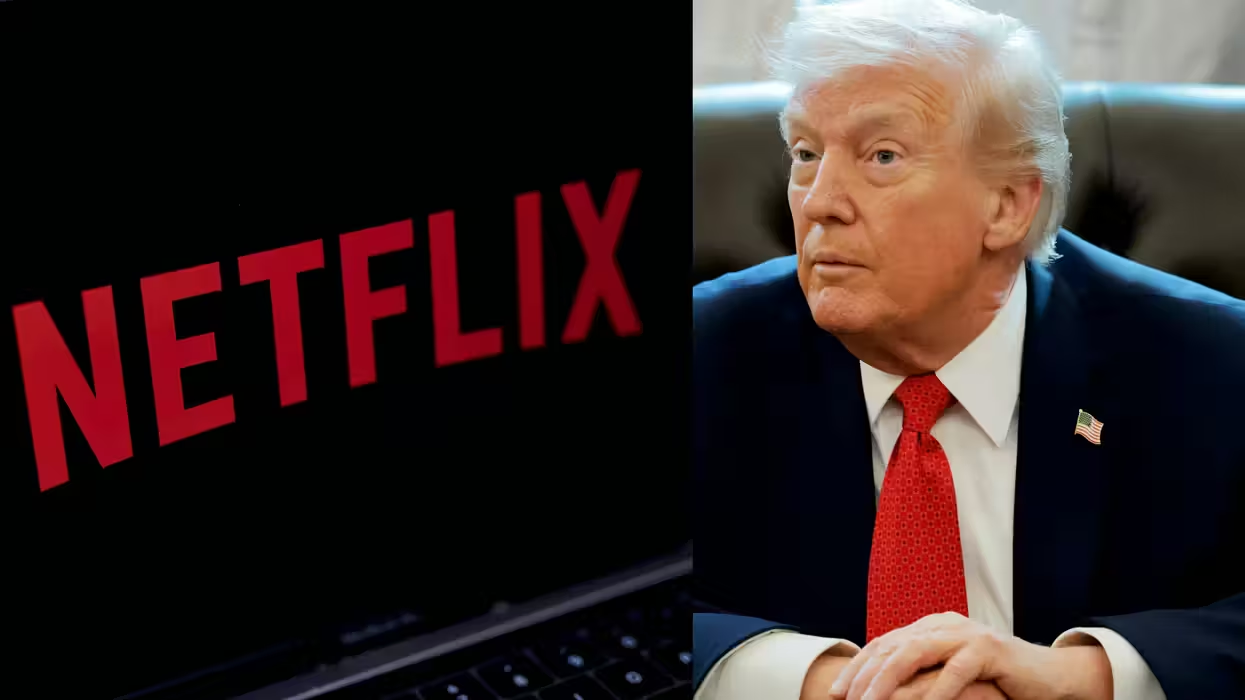
© 2025 Blaze Media LLC. All rights reserved.
There is a lot of demand for mobile data bandwidth in our increasingly wi-fi world. Unfortunately, there isn’t as much supply as we would like, hence the rise in prices.
Have you noticed the cost of your smartphone plan keeps increasing? There was quite a hullabaloo last year when AT&T hiked rates and Verizon–affectionately known as “Big Red”–switched from individual plans to their Share Everything mantra. Whereas unlimited data was once the norm, these days you’ll be lucky if you can get 1GB included on your plan. Meanwhile, nearly every carrier has introduced some sort of data throttling, slowing down your access speeds after you hit a data cap.
What gives?
It all comes back to supply and demand. There is a lot of demand for mobile data bandwidth in our increasingly wi-fi world. (Cisco Systems estimates a 13-fold increase by 2017. That’s right; the amount of data we’ll use in just 4 years will go up 13 times.) Unfortunately, there isn’t as much supply as we would like, hence the rise in prices.
Part of this is because a huge chunk of the electromagnetic spectrum in America is owned by the government. Brent Skorup over at the Technology Liberation Front notes that the government owns around 1500 Mhz of the spectrum, valuable bands that mobile carriers can use to move your data when you want it. (Naturally, the NSA would love a peek.) In 2010, President Obama directed government agencies to free up a third of that spectrum for consumers to use instead.
So far, that hasn’t been going quite well; namely, the Pentagon believes it must have all its spectrum in the name of national security, while other agencies have been digging in their heels as well.
Skorup suggests we take one of two proposals: either a GSA-like entity that would lease the spectrum to government agencies, thus forcing them to economize by actually having to pay for it, or a BRAC-style agency that would go through and clear out the spectrum for use by consumers. I prefer the latter option; the GAO has noted that the government is using its spectrum quite poorly, and I don’t see how the spectrum GSA would functionany better than the original.
Congress instructed the FCC to also conduct incentive auctions, buying out private broadcasters to free up spectrum, then selling it again. (Note, this isn’t the digital version of eminent domain; the government will only buy the spectrum at rates the broadcasters agree to.) The idea is that the spectrum will be more valuable for mobile data than for TV broadcasts, which seems likely.
However, the FCC is going about it the wrong way, contemplating banning Verizon and AT&T from participating in the auction of certain spectrum blocks. That’s exactly the wrong thing to do. Freezing out the two largest carriers is, first, not fair, and second, gets the government involved in picking winners and losers.
Supposedly, the argument is that if Verizon and AT&T expand their spectrum holdings, T-Mobile, Sprint and other small carriers won’t be able to expand their networks. That’s doesn’t seem right. If AT&T and Big Red do a terrible job managing their networks and fail to provide their customers the services they want, said customers will switch to other networks, bringing increased revenue to the smaller players. That will certainly allow T-Mobile, Sprint and others to build out their networks, even potentially buying spectrum licenses from the bigger players. And if AT&T and Verizon treat their customers well, then those customers will be glad they have the extra spectrum to handle their data traffic. The FCC should let everyone participate to make sure consumers get their money’s worth.
In any case, demand is gradually outstripping supply in the spectrum market. If we’re going to avoid sky-high mobile plan costs, we’ll have to free up as much spectrum as we can.
Jeremy Kolassa is an Associate Fellow at the R Street Institute.
--
More Contributions From TheBlaze:
Want to leave a tip?
We answer to you. Help keep our content free of advertisers and big tech censorship by leaving a tip today.
Want to join the conversation?
Already a subscriber?
more stories
Sign up for the Blaze newsletter
By signing up, you agree to our Privacy Policy and Terms of Use, and agree to receive content that may sometimes include advertisements. You may opt out at any time.
Related Content
© 2025 Blaze Media LLC. All rights reserved.
Get the stories that matter most delivered directly to your inbox.
By signing up, you agree to our Privacy Policy and Terms of Use, and agree to receive content that may sometimes include advertisements. You may opt out at any time.






